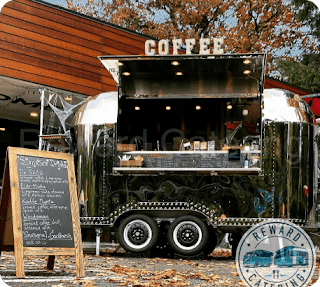Are Food Truck Businesses Profitable? A Comprehensive Analysis
Food trucks have become a popular choice for entrepreneurs looking to enter the food service industry with lower startup costs and greater mobility compared to traditional restaurants. But the burning question remains: are food truck businesses profitable? Let’s explore this in detail.
Lower Initial Investment
Cost-Effective Startup
One of the main attractions of starting a food truck business is the lower initial investment required. Unlike traditional restaurants, food trucks don’t require high expenses for building or leasing space.
Essential Investments
You'll need funds for purchasing or leasing a food truck, equipping it with necessary kitchen appliances, obtaining licenses and permits, and stocking up on initial inventory. These startup costs are significantly lower than what’s needed for a brick-and-mortar restaurant.
Operational Flexibility and Mobility
Strategic Location Choices
Food trucks offer unmatched flexibility and mobility. Owners can choose locations with high foot traffic, such as downtown areas during lunch hours, local festivals, or bustling markets.
Adapting to Demand
This mobility allows food truck operators to move to different locations based on customer traffic and demand. It reduces overhead costs associated with maintaining a fixed location and helps in reaching a diverse customer base.
Lower Overhead Costs
Minimal Rent and Utilities
Compared to restaurants, food trucks typically have lower overhead costs. Expenses such as food truck rent, utilities, and property taxes are minimal or non-existent.
Staffing Requirements
Staffing needs are also generally lower for food trucks. Depending on the size of the operation, a food truck might require fewer employees, which further reduces operational costs.
Targeted Marketing and Customer Engagement
Direct Customer Interaction
Effective marketing and customer engagement are crucial for any food service business. Food trucks have the advantage of direct interaction with customers at each location, allowing for immediate feedback and building a loyal customer base.
Social Media Presence
Social media platforms and online review sites play a significant role in promoting food trucks. Owners can engage with customers, announce locations, and showcase menu items, driving foot traffic and sales.
Seasonal Considerations
Impact of Weather
Seasonality can affect the profitability of food trucks. Outdoor dining and foot traffic may fluctuate with weather conditions and local events.
Planning for Peaks
Successful food truck operators plan their schedules around peak seasons and events to maximize profitability. During slower periods, strategic planning is necessary to maintain steady business.
Regulatory and Licensing Requirements
Navigating Regulations
Operating a food truck legally and safely requires navigating regulatory requirements and obtaining necessary licenses and permits. Compliance with health codes, zoning regulations, and local ordinances is crucial.
Impact on Costs
These regulations vary by location and can impact operational costs. Proper planning and adherence to regulations are essential for maintaining a successful and sustainable food truck business.
Scalability and Growth Opportunities
Expanding Operations
Many food truck entrepreneurs aim to expand their operations over time. This scalability might include adding more trucks, offering catering services, or transitioning to a brick-and-mortar establishment.
Strategic Growth
Strategic growth requires careful financial management, market research, and understanding customer preferences. Maintaining profitability while expanding the business demands a solid strategy.
Conclusion
Food truck businesses can be profitable ventures for those willing to navigate challenges and leverage the advantages of this unique business model. Lower initial investments, operational flexibility, targeted marketing, and the ability to adapt to seasonal demands are key factors contributing to profitability.
By understanding market dynamics, managing costs effectively, and engaging with customers, food truck operators can build sustainable and profitable businesses. Whether you’re launching a food truck or expanding an existing one, strategic planning and customer-centric approaches are vital for success.





%20(1).png)
Comments
Post a Comment